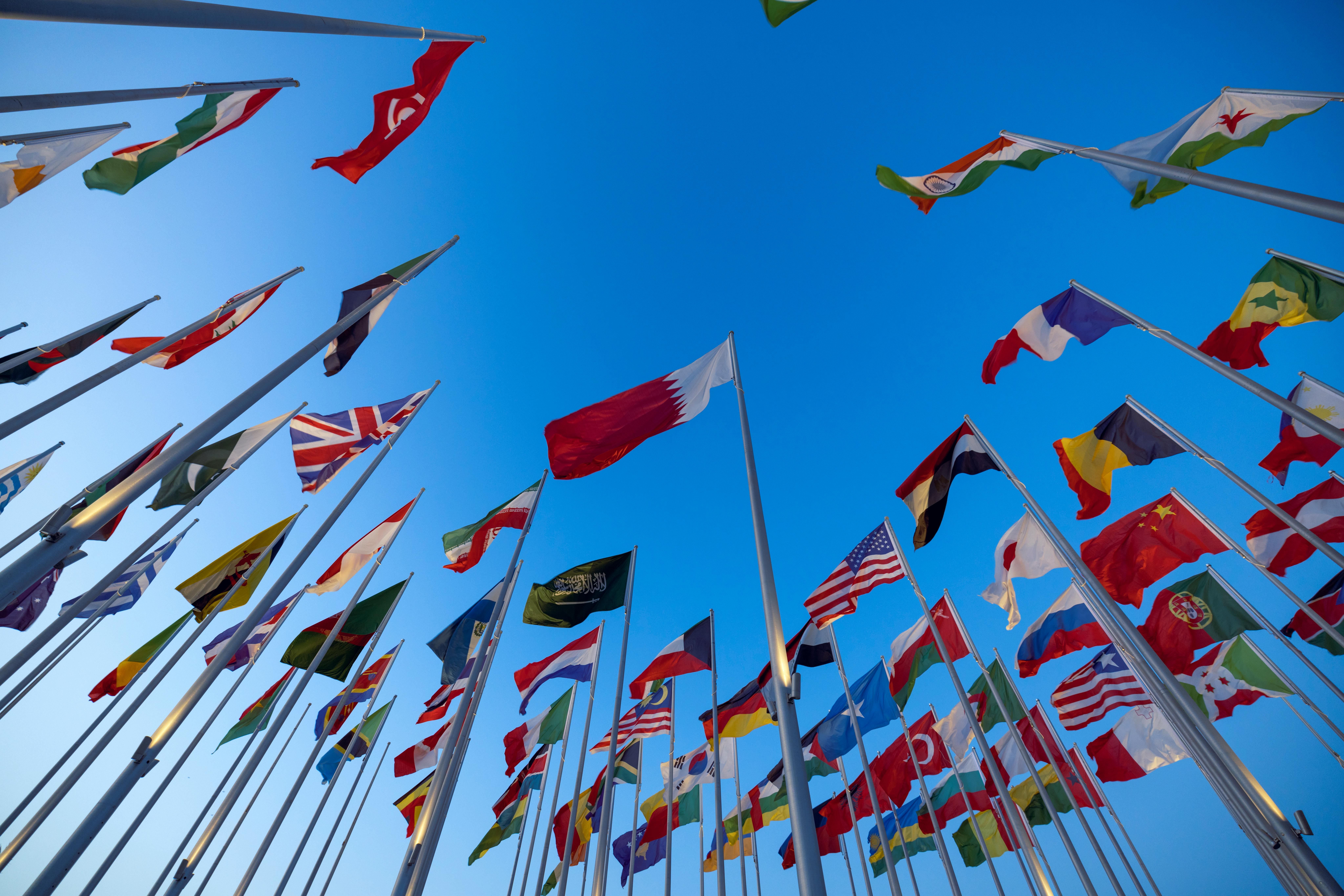Beyond Foreign Diplomats' Privileges & Immunities
Foreign diplomats serving in the United States enjoy extensive privileges and immunities under the Vienna Convention on Diplomatic Relations of 1961. While most diplomatic personnel are familiar with core protections such as immunity from arrest and prosecution, many remain unaware of additional benefits that could significantly enhance their posting experience. This comprehensive guide explores lesser-known rights available to diplomatic representatives and their families during their assignment in the United States.
Foreign diplomats serving in the United States have access to extensive privileges that extend well beyond commonly understood diplomatic immunities."
Tax Exemptions Beyond Income Tax
Most foreign diplomats understand their exemption from U.S. federal income tax on their diplomatic salaries.
However, many remain unaware of substantial additional tax benefits available throughout their posting. Diplomatic personnel accredited to the United States qualify for exemption from numerous state and local taxes, representing potential savings of thousands of dollars annually.
State Sales Tax
In states with significant diplomatic presence like New York, California, and the District of Columbia, qualified diplomats can obtain special tax exemption cards allowing them to make purchases without paying state sales tax. These exemptions typically apply to major purchases such as furniture, appliances, electronics, and even vehicles. The Office of Foreign Missions (OFM) under the State Department administers these programs, providing specialized identification cards that merchants recognize for tax-exempt transactions.
Property Tax
Property tax exemptions represent another substantial benefit for diplomatic personnel who purchase real estate during their posting. While specific regulations vary by jurisdiction, many diplomatic residences qualify for full or partial property tax exemption when properly registered with local authorities. Similarly, utility taxes on essential services including electricity, water, and telecommunications may be eligible for diplomatic exemption in certain jurisdictions.
The exemption process requires proper documentation and periodic renewal, but many diplomatic missions fail to fully leverage these benefits due to procedural unfamiliarity. Proper registration with the State Department's Office of Foreign Missions and maintenance of appropriate diplomatic identification are essential prerequisites for accessing these tax advantages.
Educational Benefits for Diplomatic Families
Diplomatic families with school-age children have access to special educational opportunities that remain underutilized by many foreign missions.
Preferential Admissions
Several prestigious private schools in diplomatic hubs like Washington D.C., New York, and other major metropolitan areas maintain preferential admission policies for children of diplomatic personnel. These institutions often reserve a specific percentage of enrollment slots for diplomatic families, potentially allowing admission to highly competitive schools that might otherwise have lengthy waiting lists.
Reduced Tuition Rates
Beyond preferential admission, some educational institutions offer reduced tuition rates or specialized scholarship programs specifically for diplomatic families. These arrangements acknowledge the unique circumstances and contributions of the diplomatic community while providing stability for children facing international transitions. International schools in particular often maintain flexible enrollment procedures to accommodate diplomatic posting schedules that frequently don't align with traditional academic calendars.
At the university level, diplomat dependents may qualify for in-state tuition rates at public universities despite their relatively recent arrival in the state. Some institutions maintain special consideration programs for diplomatic dependents that waive standard residency requirements for tuition purposes. Additionally, several scholarship programs specifically target students from diplomatic families, recognizing their multicultural backgrounds and international perspectives.
The State Department's Diplomatic Partnership Division facilitates connections between foreign missions and educational institutions, providing resources that many diplomatic families never fully explore. These educational opportunities not only provide immediate benefits during a U.S. posting but can establish valuable international educational credentials for diplomatic children.
Healthcare Reciprocity Arrangements
Healthcare access represents a critical concern for diplomatic personnel and their families during international assignments.
While embassies typically arrange basic healthcare coverage, many diplomats remain unaware of reciprocal healthcare arrangements that provide enhanced medical access beyond standard diplomatic insurance.
The United States maintains healthcare reciprocity agreements with several nations, allowing diplomatic personnel from these countries privileged access to certain medical facilities and treatment options. These arrangements can provide coverage for specialized treatments, emergency care, and sometimes routine medical services at reduced costs or streamlined access protocols. Depending on the specific bilateral agreement, these benefits may extend to family members and diplomatic support staff.
Several major medical centers in diplomatic hubs maintain international patient offices specifically designed to serve the diplomatic community. These specialized departments offer services including multilingual staff, cultural accommodation, expedited appointment scheduling, and assistance navigating insurance requirements specific to diplomatic status. Some facilities even provide dedicated liaison officers who specialize in diplomatic healthcare coordination.
The Office of Foreign Missions provides guidance on healthcare reciprocity arrangements, though many diplomatic missions fail to fully investigate these options until medical emergencies arise. Proper registration and documentation with both the State Department and relevant healthcare providers ensures maximum accessibility when medical needs emerge.
Expedited Immigration Processing for Household Staff
Maintaining appropriate household support represents a significant concern for diplomatic families, particularly those accustomed to domestic assistance in their home countries.
Many diplomats remain unaware of specialized immigration provisions allowing them to bring household employees from their home countries through streamlined processes.
The A-3 and G-5 visa categories provide pathways for domestic workers serving diplomatic households to accompany diplomatic personnel to the United States. These visa categories receive expedited processing compared to standard employment visas and offer several advantages including:
Foreign diplomats can sponsor domestic employees including housekeepers, chefs, nannies, drivers, and personal assistants through these specialized visa categories. While the sponsoring diplomat must demonstrate ability to provide appropriate compensation and working conditions, the process avoids many of the lengthy requirements of standard work visas. The State Department maintains specific guidelines regarding minimum compensation, working hours, and living conditions to prevent exploitation while facilitating appropriate household staffing.
Many diplomatic missions remain unfamiliar with proper procedures for domestic staff documentation, sometimes resulting in complications that could be avoided through proper advance planning. Diplomatic personnel should engage with immigration resources early in their posting preparation to ensure smooth transitions for household support staff.
Customs Clearance for Personal Shipments
Diplomatic personnel enjoy extensive customs privileges that extend well beyond their initial relocation to the United States.
While most diplomats utilize customs exemptions for their initial household shipment, many remain unaware that these privileges continue throughout their posting, allowing duty-free importation of personal goods at any time during their assignment.
Accredited diplomatic personnel retain the right to import personal items without duties or detailed inspection throughout their posting. This privilege applies not only to household effects but extends to personal purchases made during home leave, items shipped from family members, and goods acquired during official travel. The customs exemption process requires proper documentation through diplomatic channels, typically facilitated by the embassy's administrative section.
Particularly valuable are provisions allowing diplomats to import vehicles duty-free, representing potential savings of thousands of dollars compared to local purchase. While most diplomatic missions facilitate initial vehicle imports during relocation, many diplomats remain unaware they can import additional or replacement vehicles during their posting through the same diplomatic channels.
The Office of Foreign Missions maintains specific procedures for diplomatic customs clearance that require proper documentation and certification. Foreign missions with experienced administrative staff typically maintain efficient systems for these processes, but newly established or smaller diplomatic outposts may lack institutional knowledge of these procedures.
How Sankare Law International Can Help
At Sankare Law International, we specialize in providing comprehensive legal support to diplomatic personnel navigating the complex landscape of privileges and immunities in the United States.
Our practice understands the unique legal position of foreign diplomats and offers tailored services to maximize available benefits while ensuring compliance with diplomatic protocols.
Our diplomatic support services include:
- Comprehensive assessment of available tax exemptions based on specific diplomatic status and jurisdiction
- Documentation preparation and submission for tax exemption certifications across multiple authorities
- Guidance on educational options and assistance with preferential admission applications
- Navigation of healthcare reciprocity agreements and coordination with medical facilities
- Complete immigration processing for diplomatic household staff
- Customs clearance documentation and procedures for ongoing shipments
- Intervention and negotiation in cases where diplomatic privileges have been incorrectly denied
We maintain specialized knowledge of the Vienna Convention on Diplomatic Relations and its implementation within the U.S. legal system. We provide discrete, culturally sensitive representation that respects diplomatic protocols while achieving practical results for our clients. With multilingual capabilities and extensive experience serving diverse diplomatic communities, Sankare Law International offers comprehensive support throughout your diplomatic posting.
Conclusion
By fully utilizing available tax exemptions, educational opportunities, healthcare arrangements, immigration provisions, and customs privileges, diplomatic personnel can significantly enhance their posting experience while reducing financial burdens. However, accessing these benefits requires proper documentation, timely application, and understanding of sometimes complex procedures. With appropriate legal guidance and proactive planning, diplomatic personnel can maximize these valuable but often overlooked privileges throughout their United States assignment.
.png)



.png)